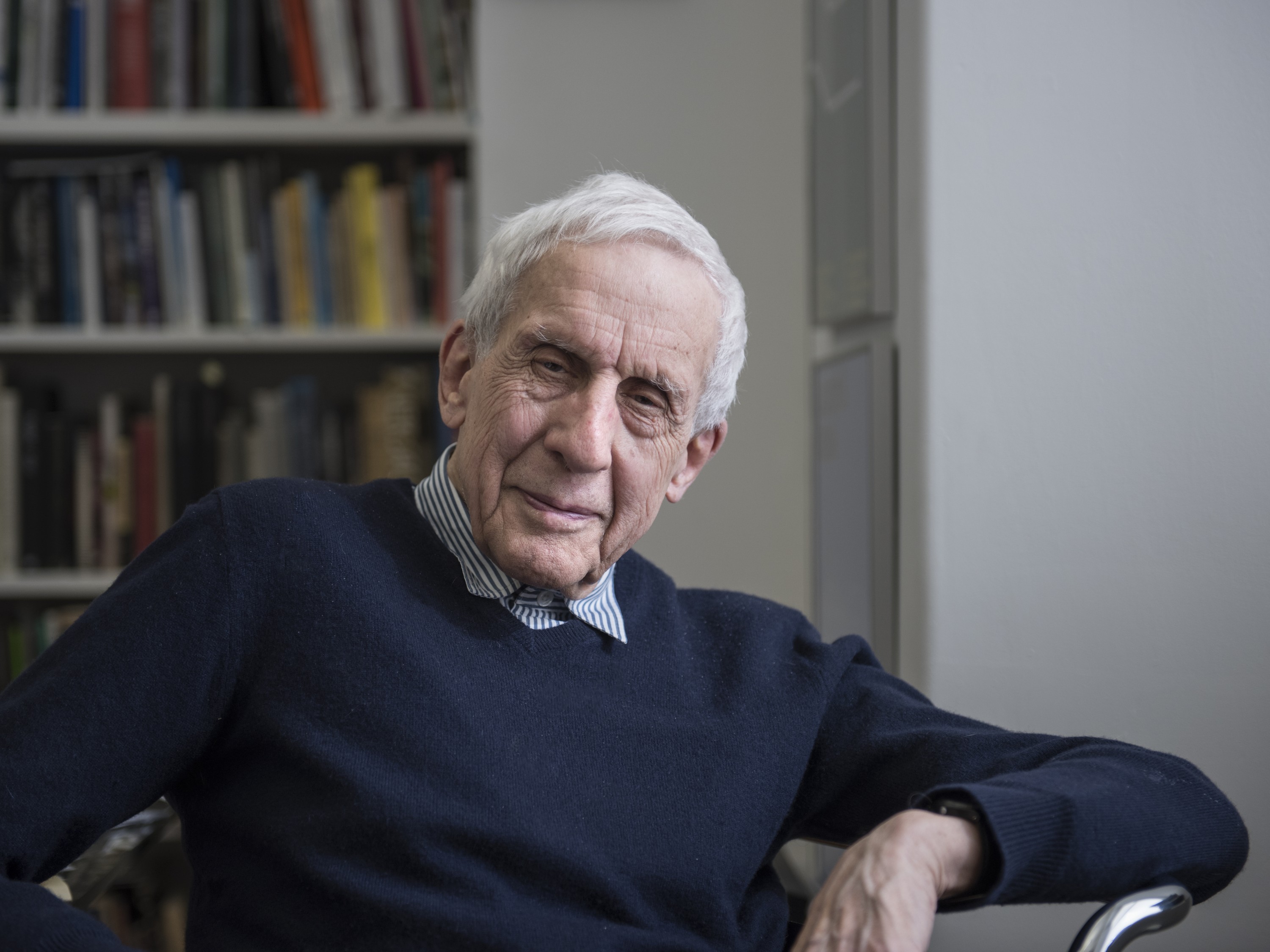
In 2021 he was appointed Commander of the Order of the British Empire (CBE) in the UK for his service to architecture. (Photo courtesy FRAMPTON)
Kenneth Frampton was born in 1930 and trained as an architect in the Architectural Association, London. From 1959-1965 he worked in the UK architecture office of Douglas Stephen & Partners where he designed the notable project, the Corringham, a residential apartment complex in Central London. The building, one of the few post-war buildings to be listed and designated by Historic England, was identified as an “exceptionally important” structure of “special architectural interest.” From 1962 to 1965 he was technical editor of the magazine Architectural Design. In 1965, he moved to the United States to teach as a visiting professor at Princeton University and since then he has been active as a critic and an academic. He is the author of a many books and articles, including: “Towards a Critical Regionalism: Six Points for an Architecture of Resistance” (1983), Modern Architecture: A Critical History (1980-2021), Studies in Tectonic Culture (1992), Le Corbusier (2001/2022), Labor, Work & Architecture (2005), A Genealogy of Modern Architecture (2015) and The Other Modern Movement (2021). Along with architects Peter Eisenman and Mario Gandelsonas, he was a founding editor of Oppositions, an architectural journal produced by the Institute for Architecture and Urban Studies (IAUS) from 1973 to 1984. In 2017, the Canadian Centre for Architecture, which holds his archive, held an exhibition titled Educating Architects: Four Courses by Kenneth Frampton that examined aspects of this renowned teaching that informed his key publications. He is the Emeritus Ware Professor of Architecture at the Graduate School of Architecture, Planning, and Preservation (GSAPP), Columbia University, New York, where he taught from 1972-2020. He has also taught at a number of architecture schools, including the ETH Zurich, EPFL, Lausanne, the Accademia di Architettura, Mendrisio, and the Royal College of Art, London. The recipient of numerous honorary degrees worldwide, he has been awarded the Architectural League of New York’s Presidential Medal (2005), the Schelling Architecture Theory Prize (2012), the Golden Lion for Lifetime Achievement (2018), among others. In 2021 he was appointed Commander of the Order of the British Empire (CBE) in the UK for his service to architecture.
On the anniversary of Thomas Jefferson’s birthday, April 13 (known locally as Founder’s Day), the University of Virginia and the Thomas Jefferson Foundation at Monticello join together to present the Thomas Jefferson Foundation Medals to recognize achievements of those who embrace endeavors in which Jefferson, the author of the Declaration of Independence and third U.S. president, excelled and held in high regard. These medals are the highest external honors bestowed by the University of Virginia, which grants no honorary degrees. For information on Founder’s Day, the Thomas Jefferson Foundation Medals and the 2020 recipients, click here.